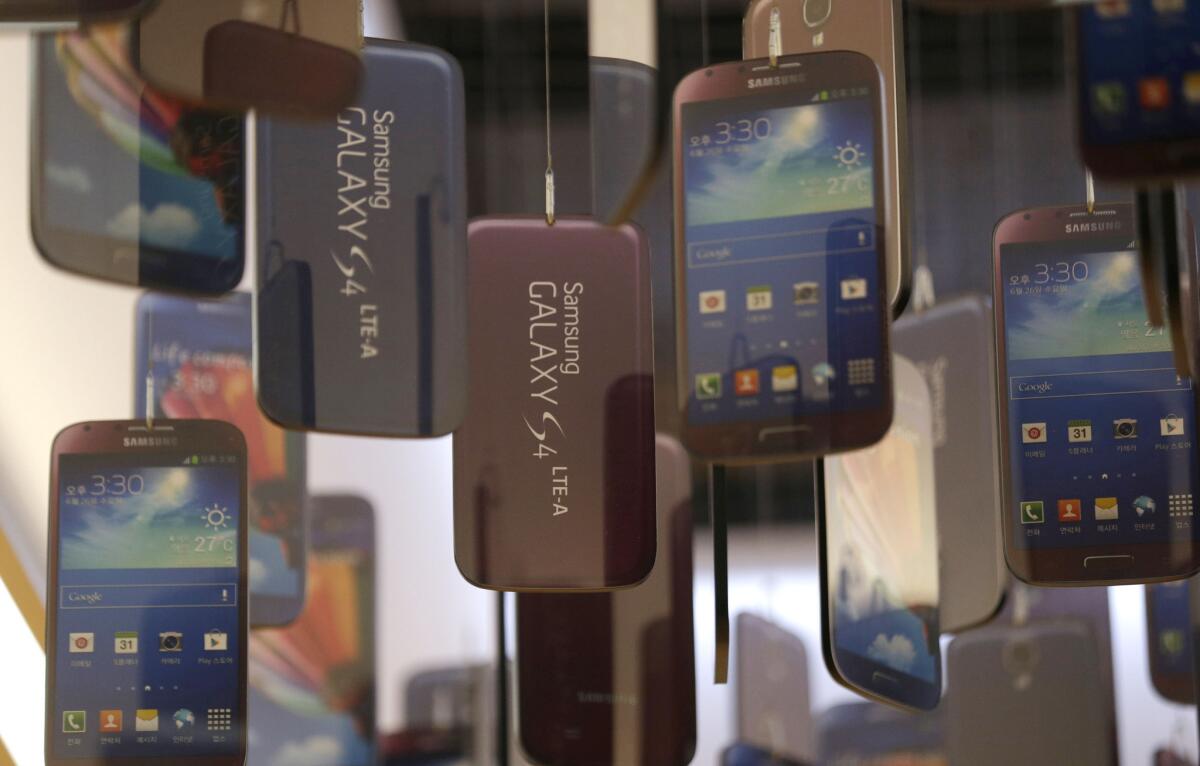Tone down the smartphone patent war

Another day, another cease-and-desist order in the bitter smartphone patent fights. This time, the U.S. International Trade Commission has ordered Samsung to stop violating two patents on Apple software for mobile devices. The ruling, issued Friday, could bar some older Samsung smartphones and tablet computers from being imported into the United States. But rather than serving the public interest, the ruling shows how far the ITC has strayed from its proper mission.
The commission, which Congress created in 1974 to guard American businesses against unfair trade practices, is hardly the only forum for patent disputes; the Patent and Trademark Office and federal district courts also can declare a patent invalid or find a product to infringe a legitimate patent. But the ITC moves with unusual alacrity, and the only remedy it offers — an order to bar a product from the United States — is an extraordinarily powerful one.
It makes sense to have the commission consider infringement claims against manufacturers that are beyond the reach of the U.S. judiciary. But it’s almost laughable to see it judging a dispute between multinational companies such as Samsung and Apple, which are suing each other in at least two federal courts at the same time they’re pleading for help from the ITC. In fact, two months before siding with Apple, the commission granted South Korea-based Samsung an order barring some older Apple products. That decision was vetoed by U.S. Trade Representative Michael Froman on Aug. 3.
Froman argued that a ban was inappropriate in the case of Samsung’s patents because they covered technologies “essential” to a key smartphone standard, which the company had agreed to license to anyone for a reasonable fee. In the new case, Samsung was found to have violated Apple’s patents on nonessential technologies covering a device’s touchscreen and headphone jack. Yet an import ban should be a last resort in such disputes too, especially when the products in question involve countless patented technologies. The goal of the patent system is to reward inventors for sharing discoveries, not to help them keep their knowledge to themselves.
There are times when banning an infringing product would be appropriate, such as when its sale would cause truly irreparable harm. In the smartphone wars, as with so many consumer product disputes, the only real issue is how much the patent holder should be paid. That’s why Froman should reject Friday’s order too, and Apple should seek an appropriate licensing fee in the courts.
More to Read
A cure for the common opinion
Get thought-provoking perspectives with our weekly newsletter.
You may occasionally receive promotional content from the Los Angeles Times.






